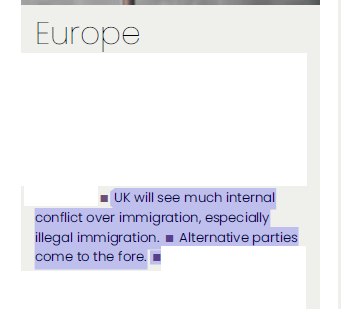UK Politics: Old Mooore gets another prediction right in the 2025 edition of Old Moore’s Almanac.

In the wake of the 2025 local elections, Nigel Farage’s Reform UK has emerged as a formidable player in British politics, challenging the long-standing dominance of the Labour and Conservative parties. With significant gains in council seats, mayoral races, and a parliamentary by-election, Reform UK’s performance has sparked debates about whether it is now the party to beat in the next general election, expected in 2029.
@skynews #ReformUK leader Nigel Farage said there would be an “essential skills” exemption in his plans to dramatically reduce migration to the UK, as was in its 2024 manifesto. #skynews
UK Politics: 2025 Local Elections
The 2025 local elections, held on May 1, marked a turning point for Reform UK. The party secured 677 of approximately 1,600 council seats across 23 councils, outperforming both Labour and the Conservatives in terms of seats won. Reform UK took control of 10 local authorities, including former Conservative strongholds like Kent, Staffordshire, and Lincolnshire, as well as Durham and Doncaster, previously Labour-leaning councils. Additionally, the party won two mayoral races in Greater Lincolnshire and Hull and East Yorkshire, with former Conservative minister Andrea Jenkyns and ex-boxer Luke Campbell emerging victorious, respectively.
Perhaps the most striking result was Reform UK’s narrow victory in the Runcorn and Helsby parliamentary by-election, where candidate Sarah Pochin defeated Labour by just six votes, overturning a Labour majority of nearly 14,700 from the 2024 general election. This win, described as the closest parliamentary by-election in modern history, brought Reform UK’s parliamentary presence to five MPs, further amplifying its growing influence.
@c4news Nigel Farage’s Reform party won a number of council seats and a Westminster byelection – so does that mean Reform is on track to win the next general election? #UKnews #NigelFarage #UKpolitics #Politics #UK #Reformuk #Reform #Localelections #Elections #C4News
Farage hailed these results as “unprecedented,” claiming that Reform UK had “beaten both Labour and the Tories in a local election” for the first time in post-war Britain. He argued that the results signalled the “end of two-party politics” and positioned Reform UK as the “main opposition” to Keir Starmer’s Labour government.
Factors Driving Reform UK’s Rise
Several factors have contributed to Reform UK’s meteoric rise. First, widespread disillusionment with the Labour and Conservative parties has created fertile ground for a populist challenger. Labour, under Prime Minister Keir Starmer, has faced criticism for policies perceived as out of touch, such as cuts to winter fuel allowances, disability benefits, and a rise in national insurance. These measures have alienated some of Labour’s traditional working-class base, particularly in northern and midland heartlands. Polling expert Sir John Curtice noted that Labour’s vote dropped by an average of 11.5% in areas where Reform UK performed strongly, suggesting that disappointment with Labour’s first 10 months in office has driven voters to Farage’s party.
The Conservatives, meanwhile, are grappling with the fallout from 14 years in government and a crushing defeat in the 2024 general election. Under new leader Kemi Badenoch, the party lost 674 council seats and all 16 councils it was defending in 2025, a result Badenoch described as a “bloodbath.” The party’s struggles to rebuild trust, compounded by internal divisions and a lingering “shadow” from past governance failures, have left it vulnerable to Reform UK’s advances, particularly in rural and suburban strongholds.
Anti-Establishment?
Reform UK has capitalised on this discontent by positioning itself as an anti-establishment force. Its campaign focused heavily on anti-immigration rhetoric, pledging to “stop the boats” of irregular migrants and opposing the housing of asylum seekers in hotels. This message resonated in areas with older populations and fewer university graduates, where Reform UK secured a 30% vote share, surpassing Labour (20%) and the Conservatives (15%). Farage’s personal charisma and media savvy, bolstered by his alignment with figures like Donald Trump, have further amplified the party’s appeal.
Nigel Farage’s Reform UK has capitalised on voter frustration to achieve historic gains in the 2025 local elections, positioning itself as a serious contender in British politics.
We won’t know what will happen in the future. But what we do know is that Old Moore has got another prediction right in 2025!





